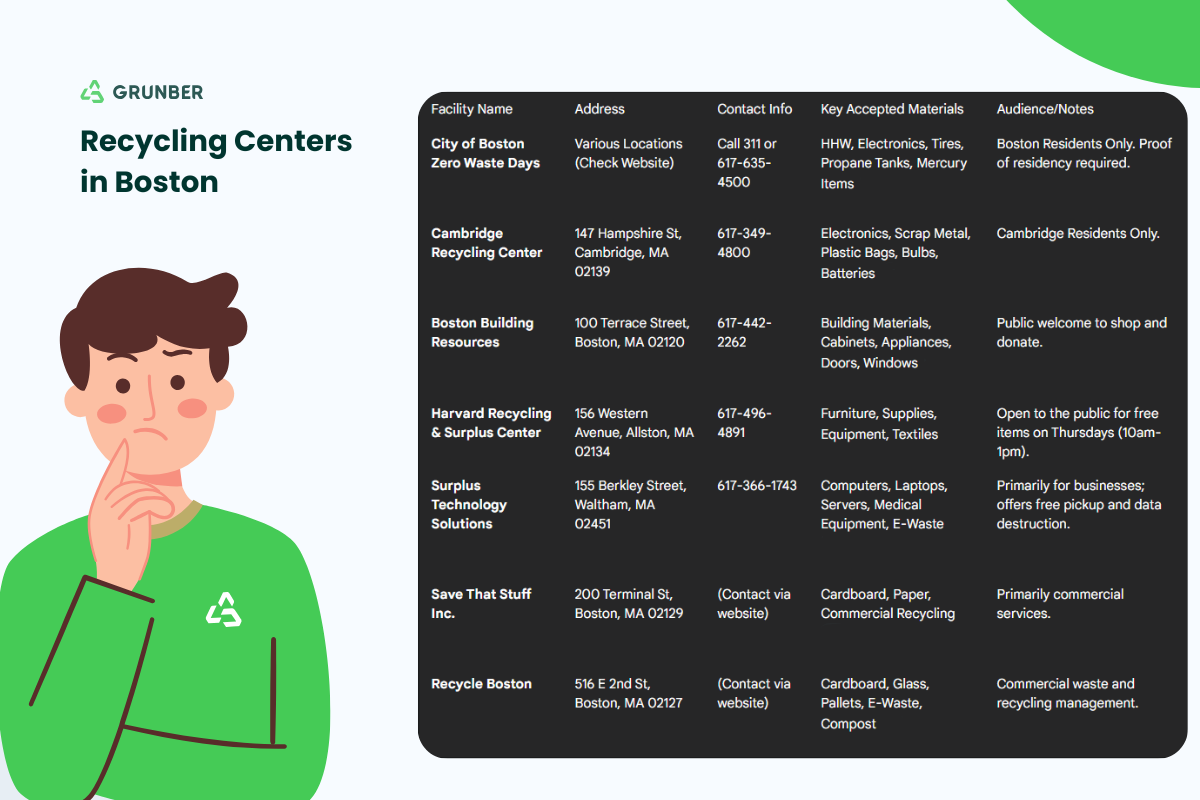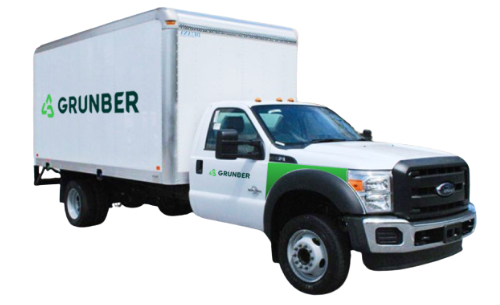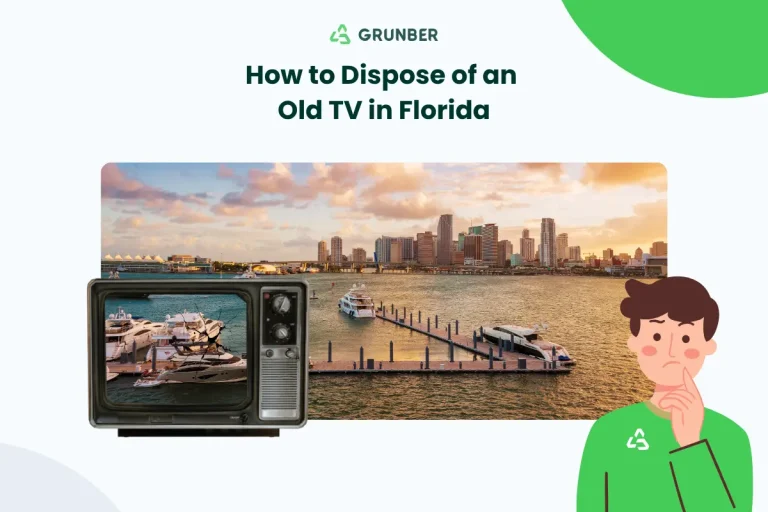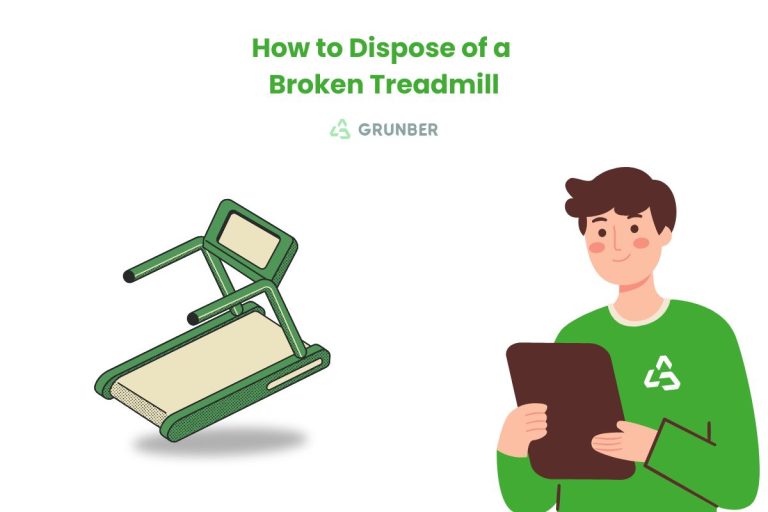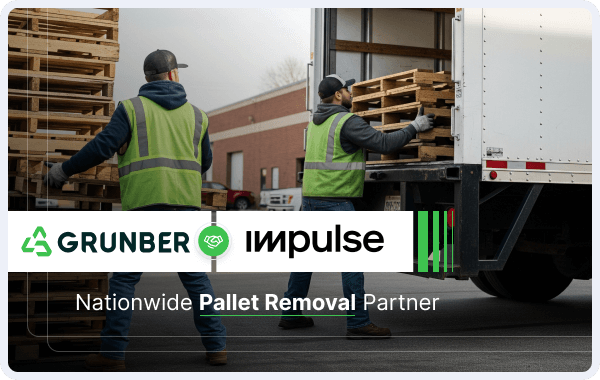Navigating the world of waste disposal in a city as vibrant and historic as Boston can feel like a daunting task. For residents, business owners, and even professional haulers, the question of “Where does this go?” is a constant challenge. It’s not as simple as finding a single “dump.” Instead, Boston’s system is an intricate network of city services, specialized private facilities, non-profit organizations, and strict regulations. The confusion around what belongs in the blue curbside bin, how to get rid of an old couch, or where to safely dispose of electronics is a common frustration.
This guide is designed to be the single, most comprehensive resource for anyone looking to manage waste responsibly in the Greater Boston area. We will demystify the rules, map out the key locations, and provide a clear playbook for everything from your weekly recycling to large-scale cleanouts. Whether you are a homeowner decluttering your basement, a property manager handling tenant move-outs, or a contractor managing construction debris, this article will serve as your definitive reference. We will explore the network of recycling centers in Boston, donation hubs, and special waste drop-off sites, ensuring you have the knowledge to dispose of your items correctly, sustainably, and legally.
Boston’s Curbside Recycling Program
For most Bostonians, the blue bin is the frontline of their recycling efforts. The City of Boston operates a “single-stream” collection service, meaning all acceptable recyclables can be placed together in one container, simplifying the process for residents. However, this convenience comes with a critical responsibility: understanding and following the rules to prevent contamination. What seems straightforward—tossing items into a bin—is governed by a precise set of guidelines that determine the success of the entire recycling system.
Decoding the Blue Bin: What Boston Accepts Curbside
The city’s program is designed to handle common household packaging and paper products. To ensure your items are successfully recycled, they must be clean, dry, and fit the descriptions below.
- Paper & Cardboard: This category includes a wide range of items like shipping boxes, cereal boxes, egg cartons, paper towel rolls, office paper, newspapers, magazines, and junk mail. A crucial rule for cardboard is that all boxes must be flattened to save space. Any cardboard that does not fit inside the blue bin must be flattened, bundled, tied with string, and placed next to the bin. These bundles must not exceed 3 feet in any dimension. TV boxes must also be broken down and should not contain any Styrofoam or plastic packaging.
- Plastic Bottles, Jugs, Tubs, and Lids: The key to recycling plastics in Massachusetts is to focus on the shape of the container, not the number inside the recycling symbol. The system is designed to sort rigid containers. Examples include plastic drink bottles, milk jugs, yogurt cups, butter tubs, and shampoo bottles. Lids and caps should be screwed back onto the empty containers before recycling; loose caps are too small and will fall through the sorting machinery.
- Metal Cans: Common metal containers like soda and beer cans, soup and vegetable cans, and clean aluminum foil are accepted. Foil should be balled up to help it move through the sorting equipment correctly.
- Glass Bottles & Jars: This includes items like beer bottles, wine bottles, and pickle jars. All containers must be empty.
A fundamental principle for all curbside recycling is the “Clean and Dry” mandate. Food residue and liquids are major contaminants that can ruin entire batches of recyclable materials, particularly paper and cardboard. A quick rinse of containers is sufficient; there is no need to run them through a dishwasher. The energy saved by recycling far outweighs the small amount of water used for rinsing.
The Contamination Crisis: Common Recycling Mistakes to Avoid
“Wish-cycling”, the practice of tossing a questionable item into the recycling bin hoping it will be sorted out, is a significant problem. It introduces non-recyclable materials into the stream, which can damage expensive sorting equipment and contaminate valuable materials, often resulting in entire truckloads being sent to a landfill. Understanding what not to recycle is just as important as knowing what is accepted.
The following items should NEVER be placed in your blue bin in Boston:
- Plastic Bags and Film: These are the number one contaminant. They get tangled in the gears of recycling machinery, causing costly shutdowns. Plastic grocery bags, bread bags, and plastic wrap should be returned to designated collection bins at local grocery stores and retailers.
- Styrofoam: Polystyrene foam, whether in the form of packing blocks, peanuts, or takeout containers, is not accepted in Boston’s curbside program and should be placed in the trash.
- Black Plastics: The optical sorting equipment at recycling facilities cannot “see” black plastic against the black conveyor belts. As a result, these items are not sorted correctly and end up in the trash.
- Small Items (under 2 inches): Any item smaller than two inches in diameter, such as loose bottle caps, plastic utensils, or shredded paper, will fall through the sorting screens and be discarded as trash. As noted, caps should be reattached to their containers.
- Food-Soiled Items: Greasy pizza boxes, paper plates with food residue, and unrinsed containers contaminate paper and cardboard, making them unrecyclable. The clean parts of a pizza box can be torn off and recycled, while the greasy portion should be thrown away or composted.
- Electronics, Batteries, and Light Bulbs: These items contain hazardous materials and require special handling. They are banned from landfills and must be taken to designated drop-off locations or events.
- Textiles and Clothing: Clothing, shoes, and linens should never go in the blue bin. They must be donated or brought to a textile recycling drop-off.
The gap between what is technologically recyclable and what is accepted in a local program is a primary source of public confusion and system-wide contamination. This knowledge gap—understanding that a plastic’s shape and color matter more than its number, or that a greasy pizza box can spoil a batch of paper—highlights the complexity behind a seemingly simple act. It is this complexity that underscores the value of professional services that possess the expertise to sort and dispose of materials correctly, ensuring maximum diversion from landfills.
Curbside Rules and Best Practices
To ensure your recycling is collected without issue, follow the City of Boston’s official guidelines:
- Placement & Timing: Recycling carts must be placed curbside no later than 6 a.m. on your collection day. To prevent spillage and code violations, do not place them out before 5 p.m. on the evening before collection.
- Container Rules: The City provides large, 64-gallon recycling carts to residents in buildings with six or fewer units. You can also use a smaller trash can (under 32 gallons) with an official recycling sticker from Boston 311. Recyclables should be placed loose in the bin; do not use plastic bags to line your cart, as the bags themselves are a contaminant (some neighborhoods have exceptions and allow heavy-duty clear bags, so check local rules if you lack space for a cart).
- Finding Your Schedule: Collection days vary by neighborhood. The most reliable way to find your schedule and receive reminders and alerts about delays is to download the city’s Trash Day App.
Central Hubs for Disposal: Recycling Centers and Drop-Off Locations in Greater Boston
While the blue bin handles daily recyclables, many items require a trip to a dedicated facility. The term “recycling centers in Boston” does not refer to a single location but rather a network of municipal, non-profit, and private drop-off points, each specializing in different materials. Navigating this network is key to responsible disposal of items that cannot go curbside.
City of Boston’s Lifeline: Zero Waste Day Drop-Off Events
For Boston residents, the most important disposal events are the “Zero Waste Days” hosted by the Public Works Department. These are periodic, free events that allow residents to safely get rid of a wide range of difficult-to-recycle and hazardous items.
- Event Types: The city hosts three main types of events: full Zero Waste Days, which accept the widest variety of materials; smaller Zero Waste Pop-Ups, which focus on at least two material types; and Yard Waste Drop-Offs for seasonal yard debris.
- Requirements: These events are strictly for Boston residents. You must provide proof of residency, such as a photo ID or utility bill. Waste from businesses is not accepted.
- Accepted Materials: This is the city’s primary solution for items banned from regular trash, including:
- Household Hazardous Waste (HHW): Oil-based paints, solvents, cleaners, pesticides, and other chemicals. There is a 20-gallon limit per resident.
- Electronics (E-waste): TVs, computers, monitors, printers, cell phones, and other electronics.
- Mercury-Containing Items: Fluorescent light bulbs, thermometers, and thermostats.
- Other Problem Items: Propane tanks, car tires (limit of 8), fire extinguishers, and car batteries.
Key Municipal and Non-Profit Facilities (Open to the Public)
Several permanent facilities in and around Boston serve as vital hubs for recycling and reuse.
- Cambridge Recycling Center (147 Hampshire St, Cambridge): While this center is open only to Cambridge residents, it serves as a prime example of a comprehensive municipal facility. It accepts many items not taken curbside, including fluorescent bulbs, non-alkaline batteries, small electronics, plastic bags, scrap metal (no appliances), and motor oil.
- Boston Building Resources (BBR) Reuse Center (100 Terrace Street, Boston): This non-profit is a crucial resource for diverting construction and renovation waste from landfills. BBR accepts donations of gently used and surplus building materials, such as kitchen cabinets, appliances, windows, doors, sinks, and flooring. Anyone can shop at the Reuse Center, making it a fantastic resource for affordable home improvement projects.
- Harvard Recycling and Surplus Center (156 Western Avenue, Allston): This is a unique and valuable community resource. Every Thursday from 10 a.m. to 1 p.m., the center is open to the general public, offering furniture, supplies, equipment, and other items for free on a first-come, first-served basis. It is an excellent destination for both finding and donating usable goods.
Specialized Private Recycling Facilities
For specific waste streams, particularly from commercial sources, private companies offer specialized services.
- Cardboard Recycling: While residents can recycle cardboard curbside, businesses often generate volumes that require a commercial solution. Companies like Save That Stuff Inc. (200 Terminal St, Boston) and Recycle Boston (516 E 2nd St, Boston) provide cardboard recycling services for businesses, helping them manage their waste streams sustainably.
- E-Waste Recycling: Surplus Technology Solutions (155 Berkley Street, Waltham) is a key regional player for electronics recycling. They serve businesses, hospitals, and schools, offering free pickup services and, critically, secure data destruction that complies with federal and state privacy guidelines. They accept a vast range of electronics, from computers and servers to medical and lab equipment.
The challenge for any resident or business is that this information is fragmented across dozens of websites. A search for a place to recycle a specific item can lead down a rabbit hole of checking city pages, non-profit sites, and private business directories, each with its own set of rules, hours, and limitations.
Consolidating this information into a single, easy-to-use directory transforms a frustrating research project into an actionable plan. This act of simplification not only provides immense value to the community but also demonstrates a deep understanding of the local disposal landscape—a hallmark of a true industry expert.
Table 1: Greater Boston Recycling & Disposal Drop-Off Directory
| Facility Name | Address | Contact Info | Key Accepted Materials | Audience/Notes |
| City of Boston Zero Waste Days | Various Locations (Check Website) | Call 311 or 617-635-4500 | HHW, Electronics, Tires, Propane Tanks, Mercury Items | Boston Residents Only. Proof of residency required. |
| Cambridge Recycling Center | 147 Hampshire St, Cambridge, MA 02139 | 617-349-4800 | Electronics, Scrap Metal, Plastic Bags, Bulbs, Batteries | Cambridge Residents Only. |
| Boston Building Resources | 100 Terrace Street, Boston, MA 02120 | 617-442-2262 | Building Materials, Cabinets, Appliances, Doors, Windows | Public welcome to shop and donate. |
| Harvard Recycling & Surplus Center | 156 Western Avenue, Allston, MA 02134 | 617-496-4891 | Furniture, Supplies, Equipment, Textiles | Open to the public for free items on Thursdays (10am-1pm). |
| Surplus Technology Solutions | 155 Berkley Street, Waltham, MA 02451 | 617-366-1743 | Computers, Laptops, Servers, Medical Equipment, E-Waste | Primarily for businesses; offers free pickup and data destruction. |
| Save That Stuff Inc. | 200 Terminal St, Boston, MA 02129 | (Contact via website) | Cardboard, Paper, Commercial Recycling | Primarily commercial services. |
| Recycle Boston | 516 E 2nd St, Boston, MA 02127 | (Contact via website) | Cardboard, Glass, Pallets, E-Waste, Compost | Commercial waste and recycling management. |
A Guide to Boston’s Donation Centers
Before considering disposal, the most sustainable option for items in good condition is to give them a second life through donation. Boston is home to a robust network of non-profit organizations that accept a wide range of goods, turning unwanted items into resources that support vital community programs. This practice not only diverts tons of material from landfills but also helps neighbors in need.
Giving Furniture and Building Materials a Second Life
Large items like furniture and appliances can be challenging to move, but several organizations make the donation process manageable, some even offering pickup services.
- Habitat for Humanity Greater Boston ReStore (1580 VFW Parkway, West Roxbury): The ReStore is a home improvement outlet that sells donated furniture, appliances, and building materials to the public at a discount. Proceeds directly support Habitat’s mission to build affordable homes in the Boston area. They accept a wide range of items, including appliances less than eight years old, kitchen cabinets, furniture in good condition, and tools. Donations are accepted Tuesday through Saturday, and they partner with a third-party service for donation pickups.
- Goodwill Boston (1010 Harrison Avenue & other locations): A well-known option, Goodwill accepts donations of furniture, clothing, electronics, and household goods. These items are sold in their retail stores to fund job training and employment services for people in the community. They have numerous attended donation centers across the region with convenient hours.
- The Salvation Army: This organization also accepts a broad array of items, including furniture, clothing, and household goods, to fund their adult rehabilitation centers. A major advantage is their free pickup service, which can be easily scheduled by calling 800-SA-TRUCK or visiting their website, satruck.org.
Where to Donate Clothing, Books, and Household Goods
For smaller items, numerous drop-off locations are available throughout the city.
- Cradles to Crayons: This organization provides children from birth through age 12, living in homeless or low-income situations, with the essential items they need to thrive. They have a unique network of purple, mailbox-style donation bins located throughout Greater Boston. They accept new and like-new children’s clothing, shoes, and books. It’s important to check their guidelines, as they are currently unable to accept toys or baby gear.
- Boston Public Library (700 Boylston Street, Boston): For books in good condition, the Boston Public Library and its branches are a simple and effective donation option.
- Other Non-Profits: Many other local organizations accept donations. The Boston Rescue Mission (39 Kingston Street, Boston) and Haley House (23 Dartmouth Street, Boston) are excellent options for donating clothing to support those experiencing homelessness.
While donation is an admirable goal, it’s important to recognize that non-profits have specific needs and quality standards. An item that a resident considers “donatable” may be rejected due to condition, style, or an oversupply of similar items. For example, the Habitat ReStore cannot accept upholstered furniture that is ripped or faded, and Cradles to Crayons has a specific list of needed items. This reality creates a direct path from a well-intentioned but failed donation attempt to a need for professional junk removal. A comprehensive service can handle all items at once, sorting them for donation, recycling, and final disposal, thereby removing the burden of navigating multiple drop-offs and potential rejections.
Table 2: Boston Donation Center Guide
| Organization Name | Address | Contact Info | Primary Items Accepted | Service |
| Habitat for Humanity ReStore | 1580 VFW Parkway, West Roxbury, MA 02132 | 617-327-1170 | Furniture, Appliances, Building Materials | Drop-off & Pickup |
| Goodwill Boston | 1010 Harrison Avenue, Boston, MA 02119 | 617-445-1010 | Furniture, Clothing, Electronics, Household Goods | Drop-off Only |
| The Salvation Army | 1500 Washington Street, Boston, MA 02118 | 617-536-5260 | Furniture, Clothing, Household Goods, Books | Drop-off & Pickup |
| Cradles to Crayons | Various Bin Locations | (Website) | Children’s Clothing, Shoes, Books | Drop-off Only |
| Boston Public Library | 700 Boylston Street, Boston, MA 02116 | 617-536-5400 | Books | Drop-off Only |
| Boston Rescue Mission | 39 Kingston Street, Boston, MA 02111 | 617-338-9000 | Clothing | Drop-off & Pickup |
Disposing of Special, Bulky, and Hazardous Waste
Some of the most common disposal challenges involve items that are too large, too heavy, or too hazardous for regular trash and recycling services. These materials are often subject to specific laws and require a clear understanding of the proper procedures to avoid fines and environmental harm.
Bulky Items
Getting rid of old furniture, such as a couch, mattress, or dresser, is a frequent need for Boston residents. Simply leaving these items on the curb is illegal and can result in fines for illegal dumping.
- City of Boston Bulk Item Pickup: The city provides a free curbside collection service for large, bulky items. However, this service is not automatic; residents must schedule a pickup in advance. This can be done through the city’s BOS:311 system or on the Public Works website. The item should be placed at the curb on the designated collection day, not before.
- “Allston Christmas”: Boston experiences a massive turnover of residents around September 1st, coinciding with the academic calendar. This period, colloquially known as “Allston Christmas,” sees a tremendous amount of furniture and other household goods left on sidewalks as people move. While the city often increases services during this time, scheduling a proper bulk pickup remains the correct and legal disposal method.
- A Note on Jurisdiction: Online searches for disposal rules can be confusing. It is critical to note that regulations for “Boston” can vary significantly by location. Rules found for Boston Borough Council in the UK or the Town of Boston, NY do not apply to Boston, Massachusetts. Always refer to the official Boston.gov website for local regulations.
Electronics and Appliances
Certain items are banned from landfills under Massachusetts state law because they contain hazardous materials. The City of Boston provides a separate collection service for these items, but like bulk pickup, it requires an appointment.
- Banned Materials: The law specifically targets items containing Freons (refrigerants found in cooling appliances) and Cathode Ray Tubes (CRTs) (found in older TVs and computer monitors), which contain lead.
- Items Requiring Special Collection:
- Freon-containing appliances: Refrigerators, freezers, air conditioners, water coolers, and dehumidifiers.
- CRT-containing electronics: TVs and computer monitors.
- Scheduling and Preparation: Residents can schedule a free special collection appointment through BOS:311. There is a limit of 10 items per household per calendar year, with a maximum of 5 items per appointment. Before placing items curbside, specific preparation is required:
- All doors must be removed from refrigerators and freezers. This is a critical safety measure.
- All food must be cleaned out of these appliances.
- Items will not be collected if these steps are not followed.
Scrap Metal
Miscellaneous scrap metal, from old pipes to broken metal shelving, does not belong in the blue recycling bin. Instead, it should be taken to a dedicated scrap metal yard, where it can be sold for recycling.
- Second Street Iron & Metal (285 Second Street, Everett): This third-generation family business is a one-stop shop for both ferrous (iron, steel) and non-ferrous (aluminum, copper, brass) metals. They purchase scrap cars, car batteries, and electric motors. For larger projects, such as construction or demolition, they offer roll-off dumpster services.
- Berwick Iron and Metal Recycling (106 RT 236, Berwick, ME): Serving Massachusetts, New Hampshire, and Maine, this facility pays by the ton for junk cars and various scrap metals. They also provide roll-off containers and on-site shearing services for large equipment disassembly.
- Solomon Metals (580 Lynnway, Lynn): This facility specializes in non-ferrous and high-value scrap. It is important to note what they do not buy, which includes steel, light iron, household appliances, and cars. This makes them a better fit for electricians, plumbers, and contractors with specific types of metal scrap.
Household Hazardous Waste (HHW)
Household Hazardous Waste includes products that are corrosive, flammable, toxic, or reactive. These materials require careful handling to protect public health and the environment.
- Defining HHW: Common examples include oil-based paints, solvents, pesticides, household cleaners, motor oil, antifreeze, and certain types of batteries.
- Primary Disposal Method: For Boston residents, the only approved method for disposing of HHW is through the city’s periodic Zero Waste Day events. These materials are strictly forbidden from regular trash and recycling.
- What is NOT HHW: A common point of confusion is paint and batteries.
- Latex (water-based) paint is NOT hazardous. It can be dried out (by adding kitty litter or a paint hardener) and then disposed of in the regular trash with the lid off.
- Alkaline batteries (AA, AAA, C, D, 9V) are NOT hazardous and can be thrown in the trash. However, rechargeable batteries (lithium-ion, Ni-Cad), button cell batteries, and lead-acid batteries are hazardous and must be brought to a Zero Waste Day.
- Commercial HHW Disposal: Businesses and institutions that generate hazardous waste cannot use residential programs. They must contract with a licensed hazardous waste management company, such as ADCO Environmental Services or Clean Management , which provide “cradle to grave” services, including waste profiling, transportation, and disposal in compliance with all regulations.
The intricate rules, legal mandates, and physical challenges associated with disposing of these special materials create a significant “DIY barrier.” The process is intentionally rigorous to ensure safety and compliance. For many, scheduling multiple pickups, preparing appliances correctly, transporting heavy scrap metal, and storing hazardous waste until the next city event is impractical. This is where the value of a professional junk removal service becomes most apparent. A single call can bypass this entire web of complexity, providing a safe, compliant, and efficient solution for all waste types at once.
A Guide for Haulers and Businesses
Commercial entities, from downtown businesses to construction contractors and professional haulers, operate under a different and more stringent set of waste management regulations. Success in this environment requires a deep understanding of city ordinances, logistical efficiency, and knowledge of the region’s commercial disposal facilities.
Boston’s Commercial Waste Regulations
For businesses, particularly those in the dense downtown area, waste disposal is tightly controlled to maintain public health and cleanliness.
- Placement and Timing: A key regulation states that no rubbish may be placed out for collection on a public street, sidewalk, or alley between the hours of 7 a.m. and 6 p.m. During these hours, waste must be transported directly from the premises where it is stored to the collection vehicle.
- Container Requirements: All commercial rubbish must be stored in durable containers, dumpsters, or tightly secured plastic bags. Cardboard boxes and paper bags are not acceptable containers for waste placement. Dumpsters must be located on private property, require a permit from Public Works, and must have their lids closed at all times.
- Enforcement and Responsibility: These regulations are strictly enforced, and violators are subject to fines. The business owner is also responsible for cleaning up any loose trash left on the sidewalk following collection. To report violations, contact Boston’s Code Enforcement division at 617-635-4885.
The Hauler’s Destination List: Transfer Stations & C&D Facilities
Professional haulers do not take mixed loads directly to a landfill. The primary destination for commercial, industrial, and construction & demolition (C&D) waste is a transfer station or a materials recovery facility (MRF). Here, waste is sorted, recyclables are recovered, and the remaining residue is consolidated for transport to a distant landfill.
- James G. Grant Co. (End of Wolcott Court, Readville/Hyde Park): This is a full-service C&D transfer station and scrap metal recycler located on a seven-acre site. They are equipped to handle a wide range of C&D materials, including wood, lumber, roofing, flooring, windows, asphalt, brick, and concrete. Their roll-off dumpsters are available for job sites, but they prohibit hazardous materials, liquids, and asbestos.
- ReSource Roxbury (101 Gerard Street, Roxbury): Located just 10 minutes from downtown Boston, this C&D processing facility is certified by the Recycling Certification Institute (RCI) for its high recovery rates. It accepts a wide variety of non-hazardous C&D materials from contractors, roofers, landscapers, and clean-out companies. They also offer dumpster rental services for the Greater Boston area.
- Casella Waste Systems (24 Bunker Hill Industrial Park, Boston): As a major regional waste management provider, Casella operates a key recycling facility in Boston. They offer comprehensive services for commercial clients, including their Zero-Sort® Recycling program, which simplifies recycling for businesses by allowing them to place all recyclables in a single container.
- B-P Trucking Inc. (300 Cox Street, Hudson, MA): This family-owned business operates a state-approved transfer station serving the Greater Boston area. They accept a wide range of materials for disposal and recycling, including paper, cardboard, glass, metal, and all seven types of plastic. They are a reliable option for haulers needing to dispose of waste in compliance with all state and federal regulations.
End of the Line: Regional Landfills
After processing at a transfer station, the final, non-recyclable, non-recoverable waste residue is transported to a landfill. It is important for industry professionals to understand that there are no active municipal solid waste (MSW) landfills within the city limits of Boston. The region’s waste is exported to facilities across the state and beyond. According to the Massachusetts Department of Environmental Protection (MassDEP), active landfills that receive waste from the region include the Fitchburg/Westminster Landfill and the Waste Management Middleborough Landfill. This knowledge of the complete waste lifecycle, from curbside bin to final disposal, is a critical component of professional expertise in the waste management industry.
For businesses and haulers, the landscape is defined by a dual burden of compliance and logistics. Adhering to strict city ordinances is non-negotiable, while choosing the correct disposal facility for a given load is essential for operational efficiency and cost-effectiveness.
Conclusion: Your Partner in Smart Disposal
As this guide demonstrates, waste and recycling in Boston is a complex ecosystem. From the specific rules of the curbside blue bin to the network of specialized recycling centers, donation hubs, and hazardous waste collection events, responsible disposal requires a significant investment of time, research, and physical effort. The path for each unwanted item is different, governed by a web of local ordinances and state laws designed to protect our community and environment.
While the DIY approach is possible for those willing to navigate the system, the complexity itself highlights the immense value of a professional, full-service solution. The regulations, the transportation logistics, the sorting requirements, and the potential for rejected donations create a series of hurdles that can be both frustrating and time-consuming.
This is where Grunber provides a simple, powerful alternative. We offer a one-call solution that handles the entire process for you.
- Convenience: Our professional team does all the heavy lifting, sorting, loading, and transportation. You don’t have to make multiple trips or worry about scheduling different pickups for different items.
- Compliance: We are experts in Boston’s disposal regulations. We ensure that every item, from an old mattress to construction debris or electronics, is handled in full compliance with the law, protecting you from potential fines.
- Eco-Friendly Commitment: Our mission is to divert as much waste from landfills as possible. We have established relationships with the donation centers and recycling facilities detailed in this guide. We meticulously sort every load to ensure that usable items are donated and recyclable materials are processed correctly.
Ready to reclaim your space without the headache? Let our experts handle the hard work. Contact Grunber today at (617) 800-6746 or visit our website to schedule a free, no-obligation estimate.


